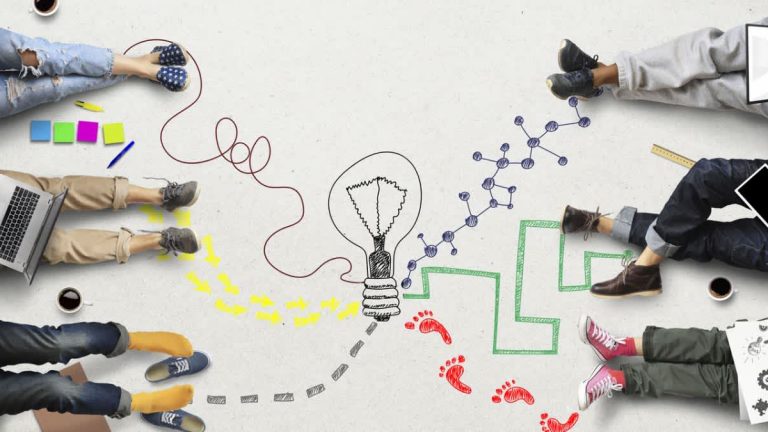Organizations must reimagine their talent environment, particularly their talent recruitment strategy, in order to navigate through the current crisis and plan for the future.
The world changed, as we knew it, with the arrival of the pandemic. In reaction to these extraordinary times, much has been said about digital transformation, and the HR department is no exception. With the outbreak of COVID-19, HR teams around the world are brainstorming to put together a comprehensive and people-centered response to the crisis. All of this was done while dealing with an avalanche of information, minimizing disruption of day-to-day business operations, and assuaging the fears of their terrified employees.
The Evolution of the HR Industry
The lockdown has signaled a significant shift in perspective in what we now know as the ‘new normal.’ Overnight shifts from physical to virtual work settings have heightened the need for HR digitization, which was undoubtedly lacking in many businesses prior to the global health emergency. The key areas of focus in which HR has been involved can be divided into two groups: digital transformation and the automation of HR processes.
Business Sustainability Strategy
The pace of digital transformation is quickening, and many businesses are failing to stay up. The speed of technological development, as well as the urge to automate, is exceeding HR’s ability to up skill or recruit workers, making it all the more difficult to execute critical HR duties. It wreaked havoc on HR functions, with substantial ramifications likely in the post-COVID-19 era, highlighting the importance of being prepared and resilient for long-term survival for both businesses and people.
Transforming an Emergency into an Opportunity
Due to business continuity strategic plans, cost-cutting and the detrimental impact of COVID-19 on the job market was common knowledge. But there were some positive improvements that have resulted in new job opportunities. Employees in all sectors have greeted the WFH model with open arms, especially in tier 1 cities where a lot of time was spent travelling; the new method of working has encouraged home-makers to return to the workforce, allowing them to manage work and family life.
As a result of WFH, it is expected to see an increase in women’s contribution to national growth following COVID-19. WFH has also broken down geographical barriers, allowing applicants from small towns to compete for jobs in big cities. This graph depicts how the job market will be ever-evolving.
Also Read: Improving Engagement and Retention Through Technology : Shweta Mishra
The future of HR, driven by technology
According to a recent KPMG survey on Covid-19 HR in India, 66% of firms have postponed or delayed hiring, while 30% have lowered their recruiting headcount expenditure. In addition, to overcome the limits of physical collaboration, a growing number of firms are utilizing novel working methods such as digital platforms. This disruption of operations has caused businesses to rely heavily on technology for a variety of day-to-day responsibilities, including tools that assure staff productivity and continuity of work, as well as solutions that make crucial HR, IT, and Finance operations efficient.
With these open tech tools, the barrier to entry (for application development) has been lowered, and HR executives are at a fascinating place in the source where they must grow their expertise and adhere to the standards that the organization requires in order to thrive.
The pandemic has resulted in developments such as how many businesses are continually increasing their interest in HR innovation, recognizing the need for adaptation and nimbleness in their strategies. From the perspective of the employee, it refers to how businesses are increasingly seeking a flexible and adaptable workforce with a wider range of skills.
Artificial Intelligence (AI) Transforms the Recruiting Process
Artificial Intelligence, Data Analytics, and Machine Learning are being used by HR departments all around the world to speed up work and improve the recruiting process. Recruiters have started employing AI tools to match job candidates, which is an improvement above traditional, commoditized recruiting methods. Through job-candidate matching, the skill sets necessary for a certain job function are rigorously matched with the capabilities held by applicants, resulting in improved recruiting choices. Recruiters can therefore cast a wider net when looking for candidates, knowing that only the best and most qualified candidates will show up for interviews.
Furthermore, during the recruiting process, HR managers placed a higher weight on applicant experience. Due to a lack of involvement or fast response, the right talent was not lost to competitors. HR managers began using automated chatbots to provide feedback following interviews and to improve the candidate experience. Using machine learning and Natural Language Processing, AI-enabled HR managers can examine everything from cultural compatibility to applicant competencies almost instantaneously. Finally, recruiters employed social media, internet marketing, and video-based recruiting platforms to improve the recruiting process.
Summing Up
Although digitization was once viewed as a long-term goal for organizations prior to COVID-19, it has now evolved into a critical step that is required to move enterprises forward into the new normal. Organizations must reimagine their talent environment, particularly their talent recruitment strategy, in order to navigate through the current crisis and plan for the future. Low-code technology is being used by HR managers and executives to adopt the tremendous upheaval that has resulted in new ways of doing things, altering job responsibilities, and maneuvering a volatile recruitment market.
Economic recovery and company operations may take a long period after COVID-19. With the evolving complexities of the work environment, the new normal may need organizations to adjust their job market strategy. The post-pandemic era will be remembered as a time of new beginnings, with organizations that survive the crisis benefiting from retooled and rejuvenated human resources. Employees’ whole lifecycles will be restructured and transformed, opening the way for more agile and efficient HR solutions that will help organizations succeed in the future.






















